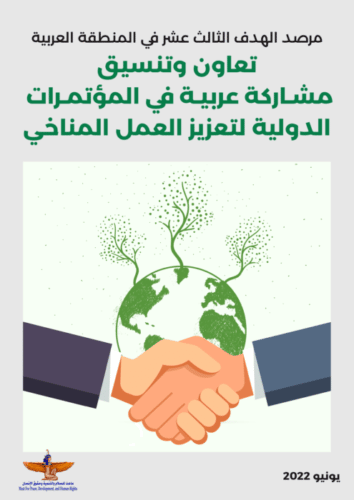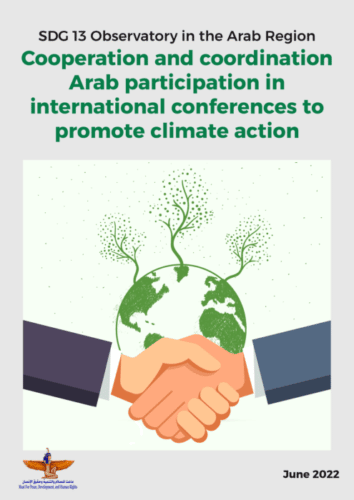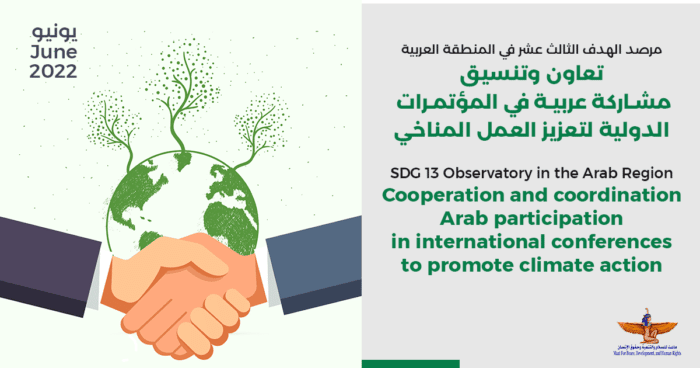Maat Releases the Sixth Issue of the SDG 13 Observatory in the Arab Region Cooperation and Coordination: Arab Participation in International Conferences to Promote Climate Action
Okeil: We call on the United Nations to organize e-learning training courses on human rights and climate change
Maryam Salah: Youth and women must be invited to the decision-making table on climate change
As part of its interest in promoting sustainable societies to protect human rights, Maat for Peace, Development and Human Rights releases its sixth issue of the "SDG 13 Observatory in the Arab Region", which came this month under the title "Cooperation and Coordination: Arab Participation in International Conferences to Promote Climate Action", in order to track good practices as well as the challenges faced by Arab countries in achieving Goal 13 of the 2030 Agenda for Sustainable Development.
In the sixth issue, Maat discussed the achievement of SDG 13 in the Arab region by identifying the most prominent governmental efforts that have been made in order to promote climate action. In June 2022, the efforts of the Arab countries focused on the targets specific to SDG 13, including integrating climate change measures into national policies, strategies, and planning; Strengthening resilience and adaptive capacity to climate-related hazards and natural disasters; Improving education, awareness-raising and human and institutional capacity on climate change mitigation, through organizing regional and international conferences in which the countries of the Arab region participate, and work to encourage them to adopt and formulate national strategies in the framework of climate work.
This issue reviewed the actions and measures taken by the country focus of this issue “The Hashemite Kingdom of Jordan” to reduce the effects of climate change, and explained that the most prominent sectors affected by climate change is the health sector, adding that in light of the Kingdom's desire to continue the process of adaptation, the Jordanian Ministry of Health announced, in the framework of Jordan’s commitments towards the United Nations Framework Convention on Climate Change and the Paris Agreement to reduce emissions and adapt to climate change, an action plan for climate change adaptation for the years 2021-2030.
In this context, Ayman Okeil, the international human rights expert and president of Maat, stressed that climate change is the biggest challenge to attaining human rights in the current era. Therefore, it has become necessary to work to promote an approach based on improving the level of respect for human rights in climate action. At the level of Arab countries, there must be further participation in international and regional conferences, in order to enhance understanding of the relationship between climate change and human rights.
The human rights expert called on the United Nations to cooperate with international and regional civil society organizations in holding and organizing e-learning training courses on human rights and climate change, coinciding with the issuance of the annual report of the Office of the High Commissioner for Human Rights regarding climate change for the year 2021, which was presented to the Member States.
Maryam Salah, a researcher at the Sustainable Development Unit at Maat, pointed to the effective roles played by different groups such as youth and women in solving climate change issues, and recommended Arab civil society organizations to establish forums and organize workshops aimed at raising the capabilities of these groups in climate change, in addition to allowing them to participate in proposing effective solutions, and submitting those recommendations to the decision-making authorities.

 |
 |
shortlink: https://maatpeace.org/en/?p=35681












